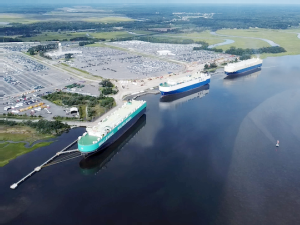Shippers are right to be angry about emergency fuel surcharges levied by carriers. Now would be a good time to devise a new system for bunker costs that protects both parties.
For many of us, fixing a nagging problem is often left to the last minute when matters reach crisis point. Container shipping, it seems, shares this affliction. The imposition of “emergency bunker surcharges” by carriers to address rapidly escalating fuel costs has been met with scorn by shippers, who accuse lines of dirty dealing and the surcharges as being a “legacy from the cartel era”.
"Containership operators need to ‘fess-up’ by taking responsibility and greater control of their costs rather than announcing vaguely explained short-notice unrecoverable surcharge costs on customers," said Chris Welsh, the soon retiring secretary general of the Global Shippers Forum (GSF), a shipper lobby group.
Drewry agrees with the GSF that a better pricing system is required, but it also despairs that the situation had to reach the cliff edge, in fact go over it, before it got airtime. Where were the calls for transparency when fuel prices were low?
There is no doubt that higher fuel costs are hurting carriers. Bunker costs have increased by about 20% since the start of the year with IFO 380 priced at $424 per tonne in Rotterdam as of Thursday 31 May, according to Ship & Bunker. Over the same period Drewry’s World Container Index, which tracks weekly spot rates inclusive of bunker on eight ‘East-West’ trade lanes, has mostly been on a downwards path.










